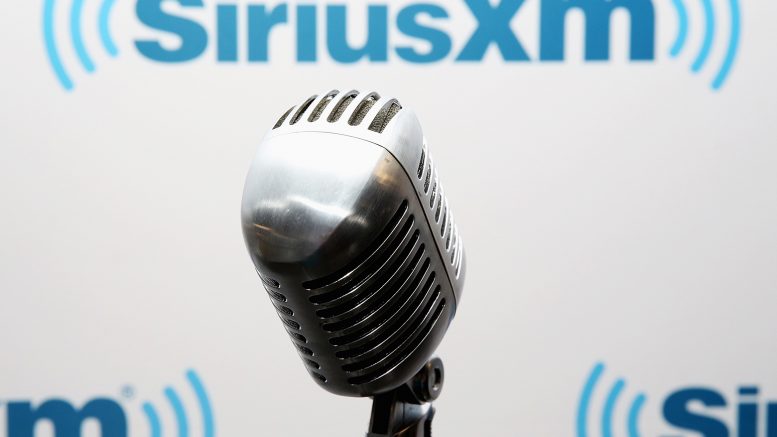Losing between 25 and 40 million dollars in a legal settlement would be a crippling blow for virtually any company — but for satellite radio giant SiriusXM, which cut such a deal in November after a long battle with pop group The Turtles over pre-1972 royalty payments, it could turn out to be a triumph.
For the past eight years SiriusXM has not been paying royalties on the music it plays that was recorded before 1972, the year that the U.S. copyright for master recordings became part of federal law. The Turtles contested the provision with a class-action lawsuit filed against SiriusXM in 2013. (In 2014 The Turtles also sued Pandora, which hasn’t paid royalties for pre-1972 recordings since 2011.)
The suit assert that, while such songs are not covered by federal law, they are protected by state laws and are entitled to royalty payments. (So far, the Turtles’ suits against Sirius have prevailed in California and New York, although they lost in Florida; all three decisions are under appeal.)
On Nov. 28 Sirius and The Turtles reached an agreement around that $25 million to $40 million payout, which would go to both The Turtles and independent labels that own music made before 1972. While the settlement doesn’t put a stop to any legal proceedings, it does act as a form of insurance for The Turtles and labels participating in the class action, guaranteeing that they will receive a pro-rata share of royalties from the $25-40 million pool. The settlement simultaneously protects SiriusXM by placing an upper limit on its financial obligation. (If the Turtles prevail in all three appeals, the pool grows by $5 million each time, but caps the settlement at $40 million.)
SiriusXM issued a statement at the time of its agreement with The Turtles and class participants, noting that “the agreement does not resolve the fundamental legal question in these lawsuits — whether the law grants owners of pre-1972 recordings a right to control performances of those recordings — with each side retaining the right to pursue appeals on that issue.” (Moreover, the settlement still needs to be approved by the courts.)
The Turtles’ legal team, of Gradstein & Marzano, are currently vetting administrators to oversee the payout. The class action is inclusive for all indie labels and has been set up as an opt-out system. Once the claim process begins, master recording copyright owners will be able to look though a list of songs issued before 1972 — songs that have been played a combined total of 11.8 million times. After labels stake a claim on the records they own the rights to, they will receive a pro-rata share of the funds based on their number of plays, expected to range from $15 to $25 per.
Sirius reached a similar settlement with the major labels and ABKCO in 2015, agreeing to pay out $210 million for their recordings made before 1972.
So… where is the win for SiriusXM, which is potentially out $40 million? As part of the agreement, SiriusXM also gets a 10-year license to play the pre-1972 recordings at issue in the three suits, and has agreed to pay royalties out of a pool of revenue comprising 5.5 percent of its gross revenue. That rate has some major label executives concerned, since it is only half of the rate — 11 percent of revenue — that SiriusXM is scheduled to pay in 2017.
While SiriusXM has the highest per-play payout in the U.S. industry, its overall revenue payout is one of the lowest. Many interactive services pay as much as 70 percent of revenue for publishing and recorded master royalties; Pandora’s non-interactive service pays about 45 percent. SiriusXM’s main competitor, terrestrial radio, pays nothing for playing master recordings, and pays about 2.5 percent to 4 percent of revenue to songwriters.
Some major label executives fear Sirius will attempt to position the Turtles’ settlement rate of 5.5 percent rate as a benchmark that the Copyright Royalty Board (CRB) could use when setting statutory rates in the future. In fact, the CRB relied heavily on two such direct deals when setting rates for digital radio last year.
If Sirius can get the judges which determine statutory royalty rates to agree that 5.5 percent represents a benchmark — and thus doesn’t give SoundExchange their 23 percent rate — then the $25-40 million it’s looking down the barrel at paying now could end up saving it $570 million a year over the next five years (the period currently being considered in the CRB’s rate setting process).
SiriusXM generated revenues of $4.6 billion in 2015. Extrapolated against that year’s statutory rate, 10.5 percent of gross revenue, the company should have paid out roughly $480 million to labels and artists that year (if it hadn’t deducted royalties for the pre-1972 recordings). At the 23 percent level, that would mean a $1.05 billion payout to labels.
Henry Gradstein, partner at Gradstein & Marzano, dismisses the notion of the settlement rate being cited as a benchmark in future talks. He says it’s not clear that every state has a law protecting the pre-1972 recordings and that The Turtles settlement is based on having a victory in only three states, which only represent about 13 percent of Sirius subscriber base. (That’s why the going-forward royalty fee cited in the settlement will decrease by 2 percent if The Turtles lose in New York and 1.5 percent if they lose in Florida, which would leave the 10-year licensing deal with only a 2 percent of revenue royalty pool.)
Making matters worse, from the perspective of those worried about a precedent-setting benchmark, a 5.5 percent rate is not the only deal that SiriusXM might put forth as representing a benchmark deal. According to the court documents, 5.5 percent is the highest rate of all the direct deals SiriusXM has cut with indie labels.
That would likely be considered a victory.
Source: www.billboard.com




